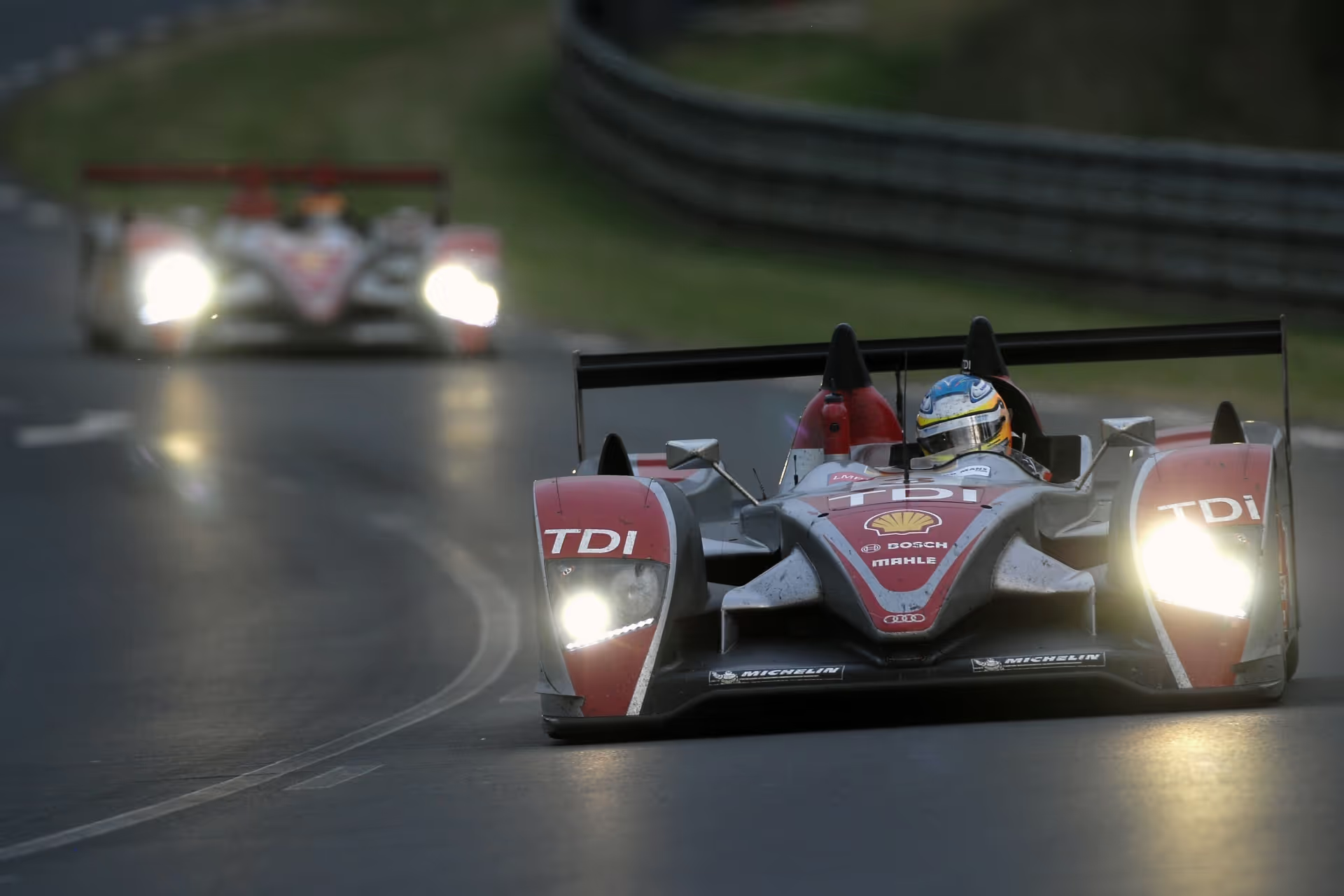Audi revealed the livery which will adorn its maiden F1 car, the R26 Concept, yesterday. Cool.
But this immediately got us thinking about Audi's past in motorsport, and how they've made some absolute bangers over the years (and some were recently for sale).
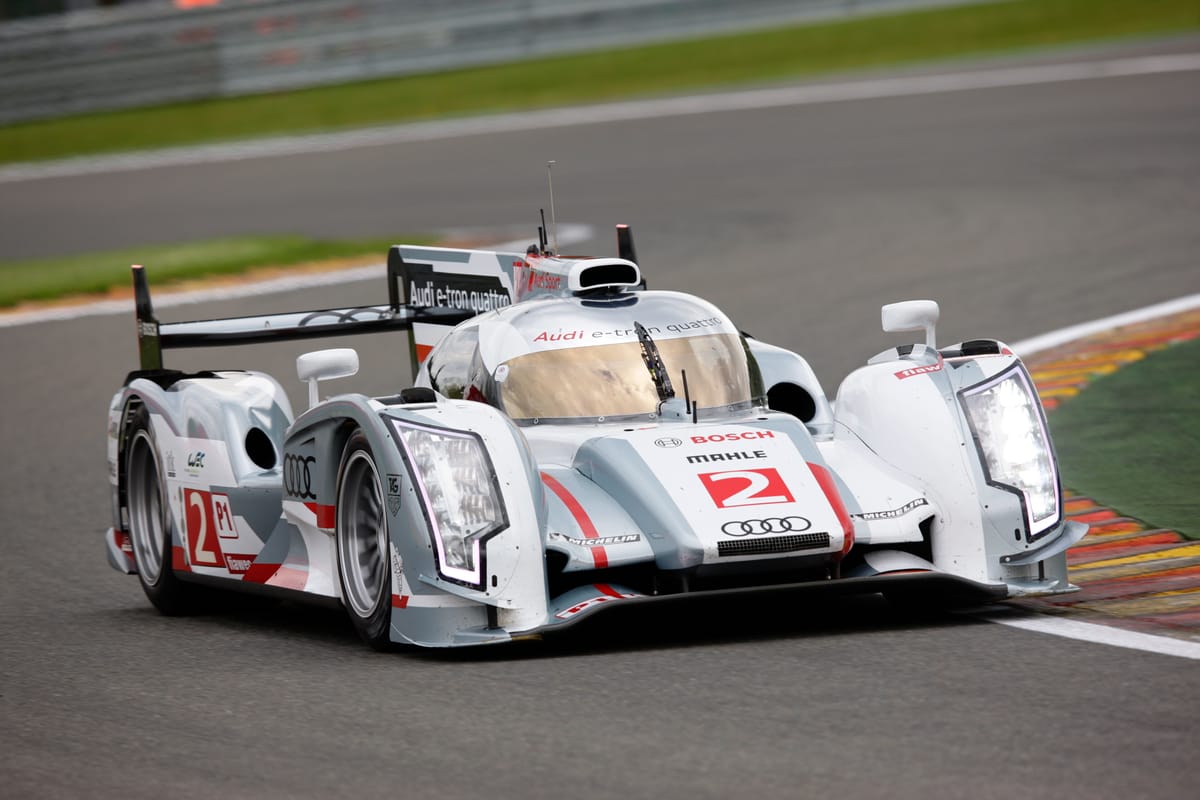
Audi R8
If you had to choose a 'greatest racing car of all time', the Audi R8 would likely be right up there as one of the main contenders.
Let's take a quick look at the stats.
It won Le Mans five times – 2000, 2001, 2002, 2004, and 2005 – and by the end of its run was, essentially, unbeatable at La Sarthe. For 2005 the ACO tried to slow it down to give everyone else a chance, and although Audi did have a proper challenge from Pescarolo that year, Audi still came out on top.
Audi also pioneered extreme repairability with the R8. Previously at Le Mans, a car would be run under its potential, lest it break down and need repairs.
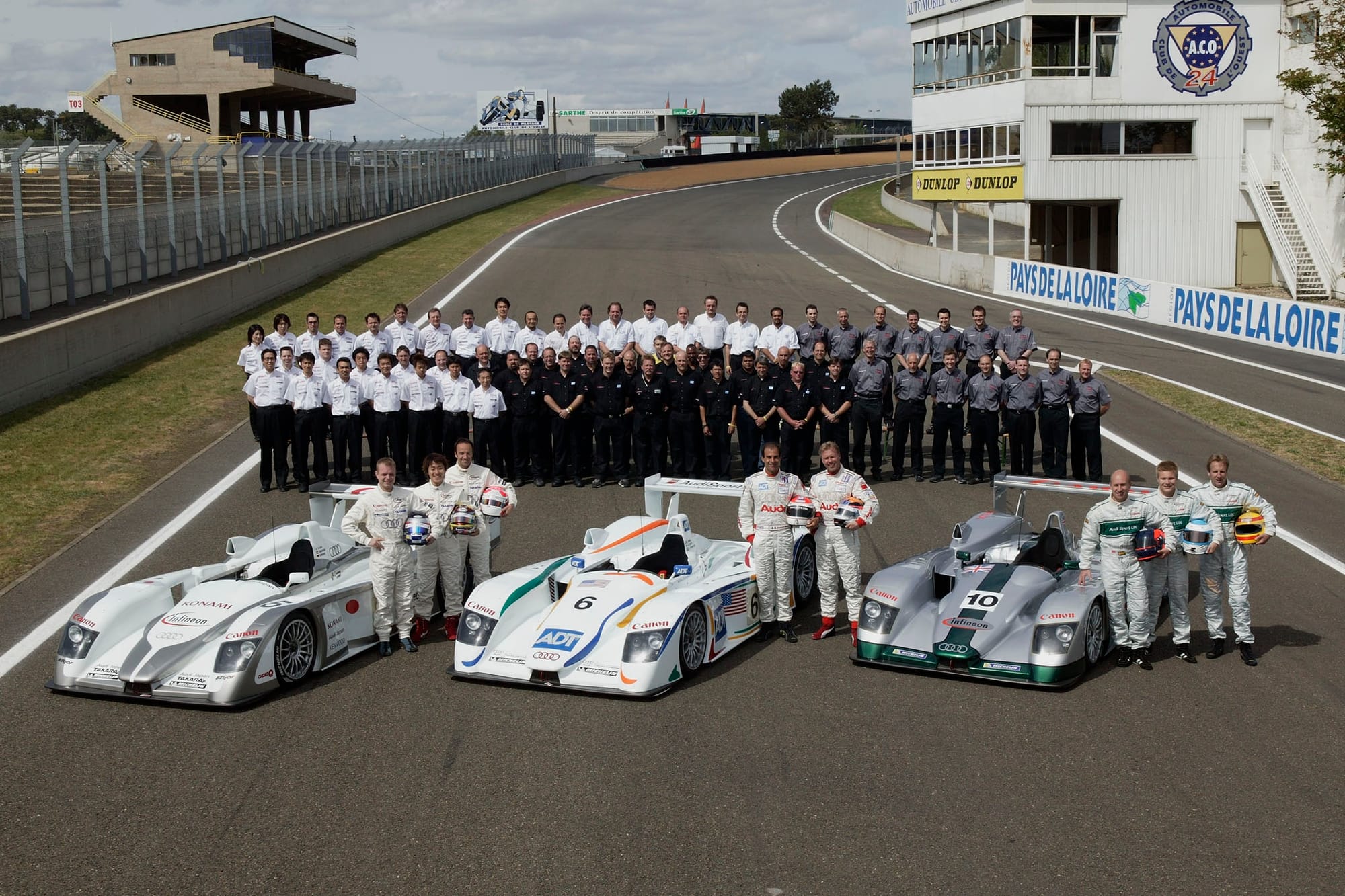
Audi decided to do things differently. They designed an entirely modular rear end – gearbox, suspension, and the other associated bits – which could be replaced in race conditions in under five minutes. The "kit" to do this would include all the parts needed plus the tools, enabling mechanics to literally get a rear end pack from the garage, replace it on the car, and send it back out. In 5 minutes. Even nowadays with uber-reliable cars that's still an incredible achievement.
This then meant they could run the car nearer to its potential limit. On top of that, the car was incredibly reliable anyway.
Hotswapping the rear end was effectively banned by the ACO – by banning gearbox changes during the 24 hour race – but it didn't stop the R8 winning, and from becoming a racing legend.
Audi R10 TDI
Audi followed the R8 up with the R10 TDI. While the R8 pioneered incredible reliability and repairability, the R10 TDI was all about something else: diesel power.
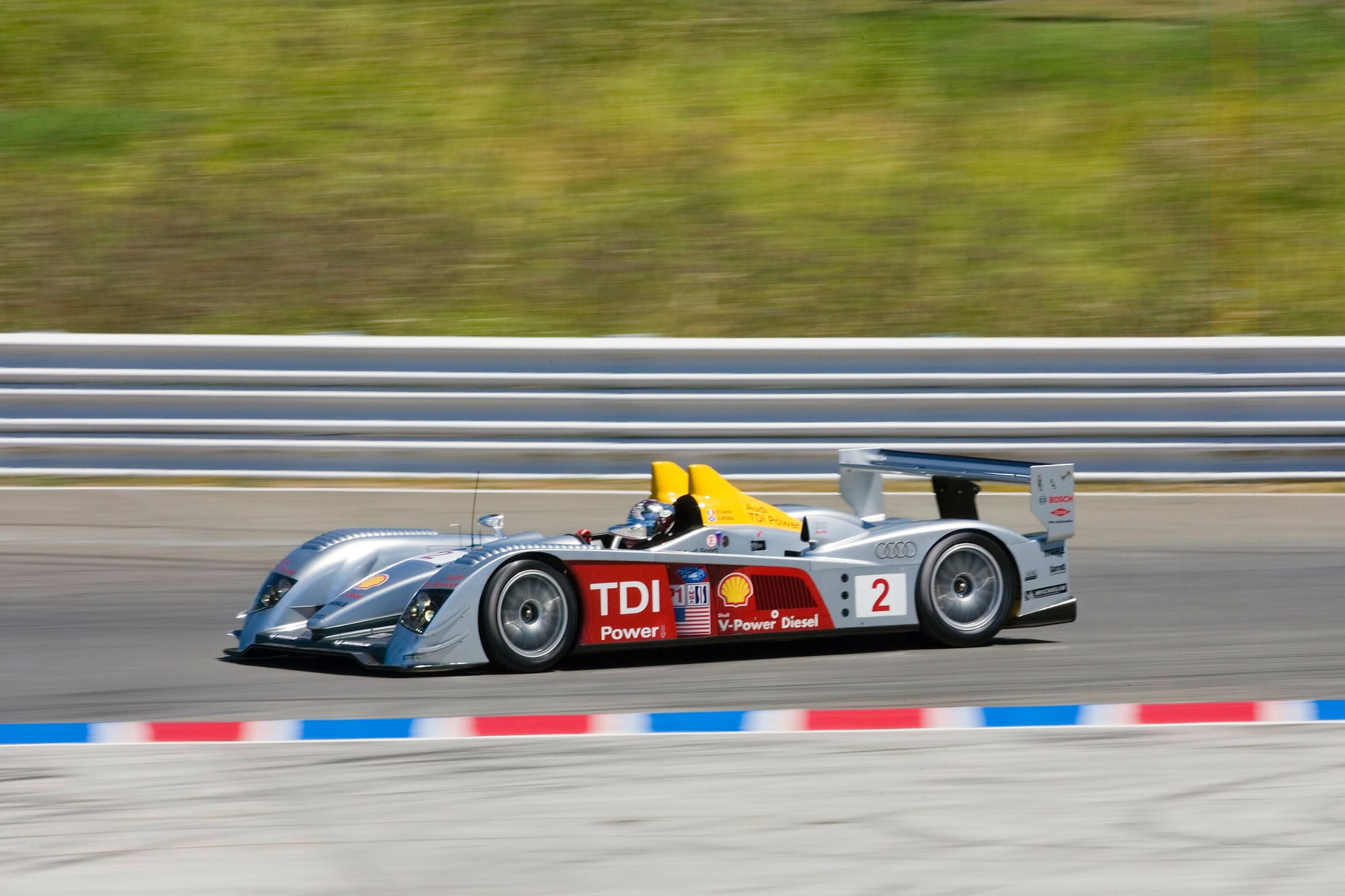
No diesel-powered car had ever won Le Mans. The thinking was you needed more diesel to achieve the same level of power, and the trade off wasn't worth it, even if they had to stop less. The idea of racing a diesel-powered car at Le Mans with serious hopes of success was generally seen as preposterous.
Audi changed this narrative with the R10. In fact, changed might be wrong word. More obliterated.
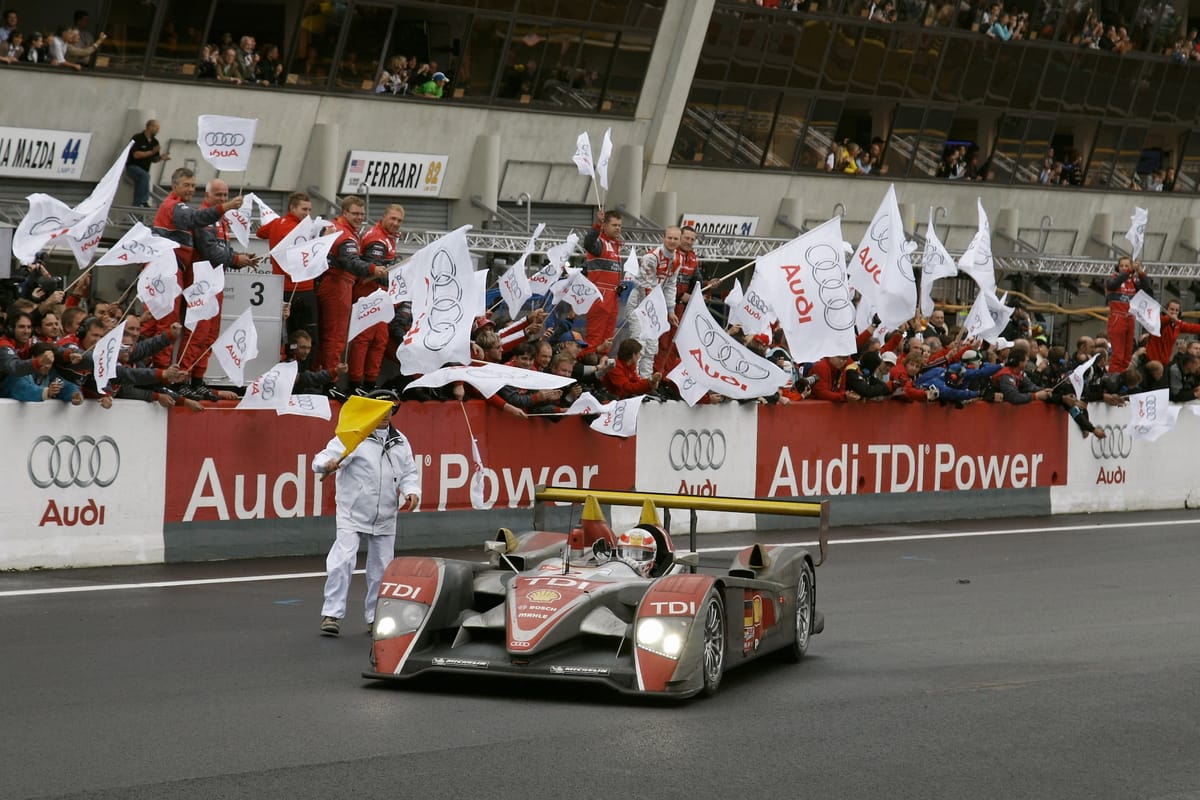
The R10 TDI won its first race at Le Mans in 2006, then followed it up with wins in 2007 and 2008. The latter two had Peugeot as a key rival. The HDi FAP (yes...) was also diesel-powered and, at points, was faster than the R10 TDI, especially in 2008 when the R10 was beginning to show its age.
However, despite the fact the Peugeot was quicker in 2008 at La Sarthe, it had to stop more frequently the R10. This meant over the course of the race the Audi could make one less stop, and therefore went onto win. An all time classic of the French endurance race!
This post is brought to you by The Racing Line, your personalised motorsport calendar app. Get session times for over 150 series, from rally to bikes, single seaters to sportscars with customisable notifications and built-in streaming. Download on iOS today!
Audi R18
Technically there are five different cars from Audi, all called the R18, and all were sports prototypes.
Audi first introduced the R18 for the 2011 edition of Le Mans, when new rules meant engine downsizing became necessary. The new car had a 3.7-litre V6, still diesel-powered but with less power than its predecessors.
It promptly won the race at the first time of asking, against Peugeot, who would quit Le Mans and the Intercontinental Le Mans Cup (WEC's predecessor series, only held in 2010 and 2011) a few months later. Side note: the 2011 race was, again, an all-time classic. It's well worth a watch.
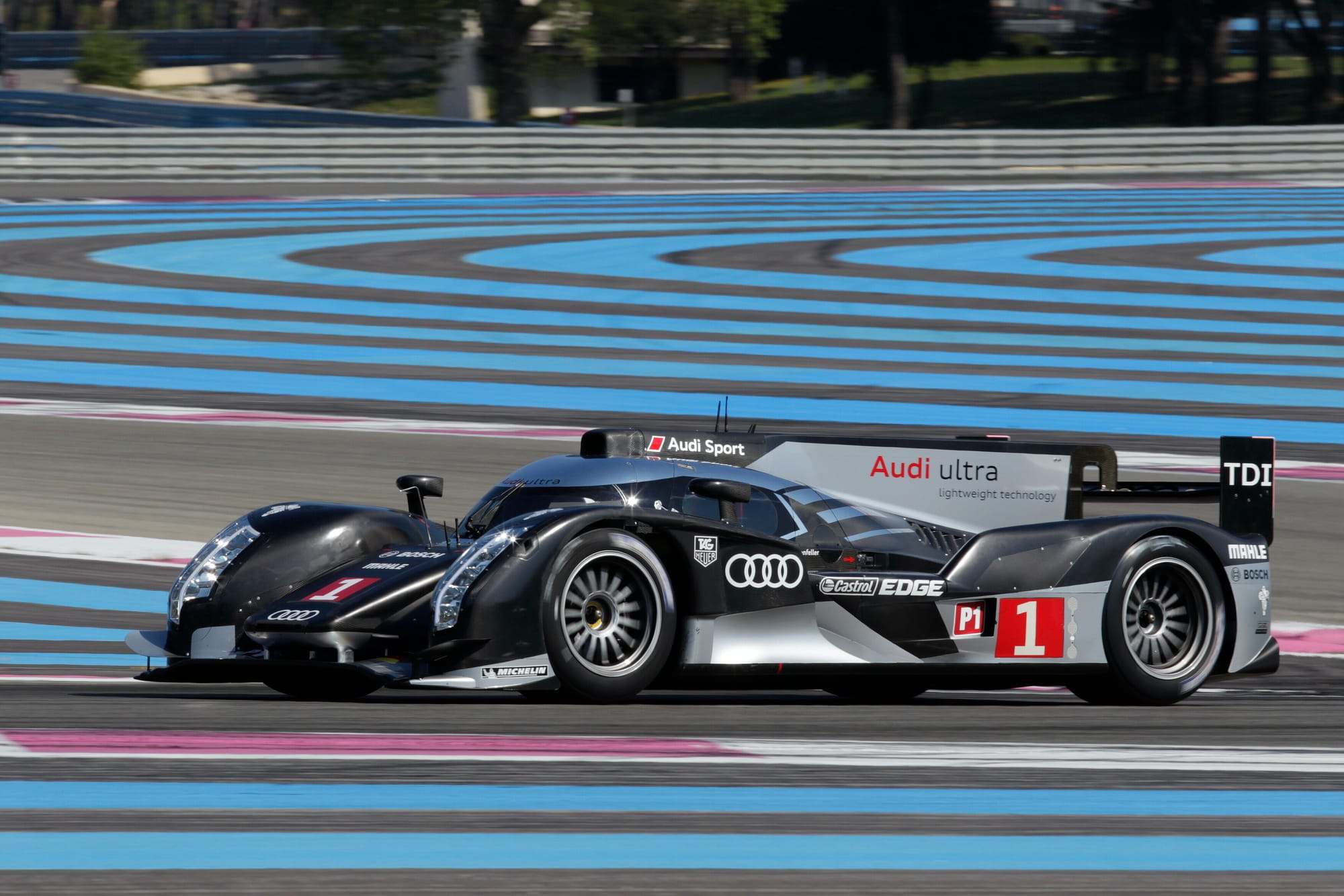
For 2012, Audi introduced another innovation: a hybrid car. While hybrids had competed at Le Mans before, none had been successful. The R18 e-tron quattro, as it was known, changed that. It had four-wheel drive, with electric motors powering the front wheels and the rear wheels driven by the conventional internal combustion engine.
And... you guessed it, Audi won again, the first hybrid to win Le Mans. And it was still diesel-powered!
2013, 2014 and 2015 saw evolutions on the R18 e-tron quattro, taking two more Le Mans wins, before another new R18 was introduced for 2016. This had dramatically different aerodynamics, a new dark grey and red livery which made it look like something designed by the Empire in Star Wars, and perhaps most importantly, a new hybrid system.
The older hybrid R18s had a flywheel-based mechanical hybrid system, which would generate up to 6MJ of energy by 2015.
However, it was clear the market was heading towards lithium-ion batteries as the conventional way to store hybrid energy. Audi too had seen this coming and switched to using batteries for the R18, upping the storage capacity to 8MJ in the process.
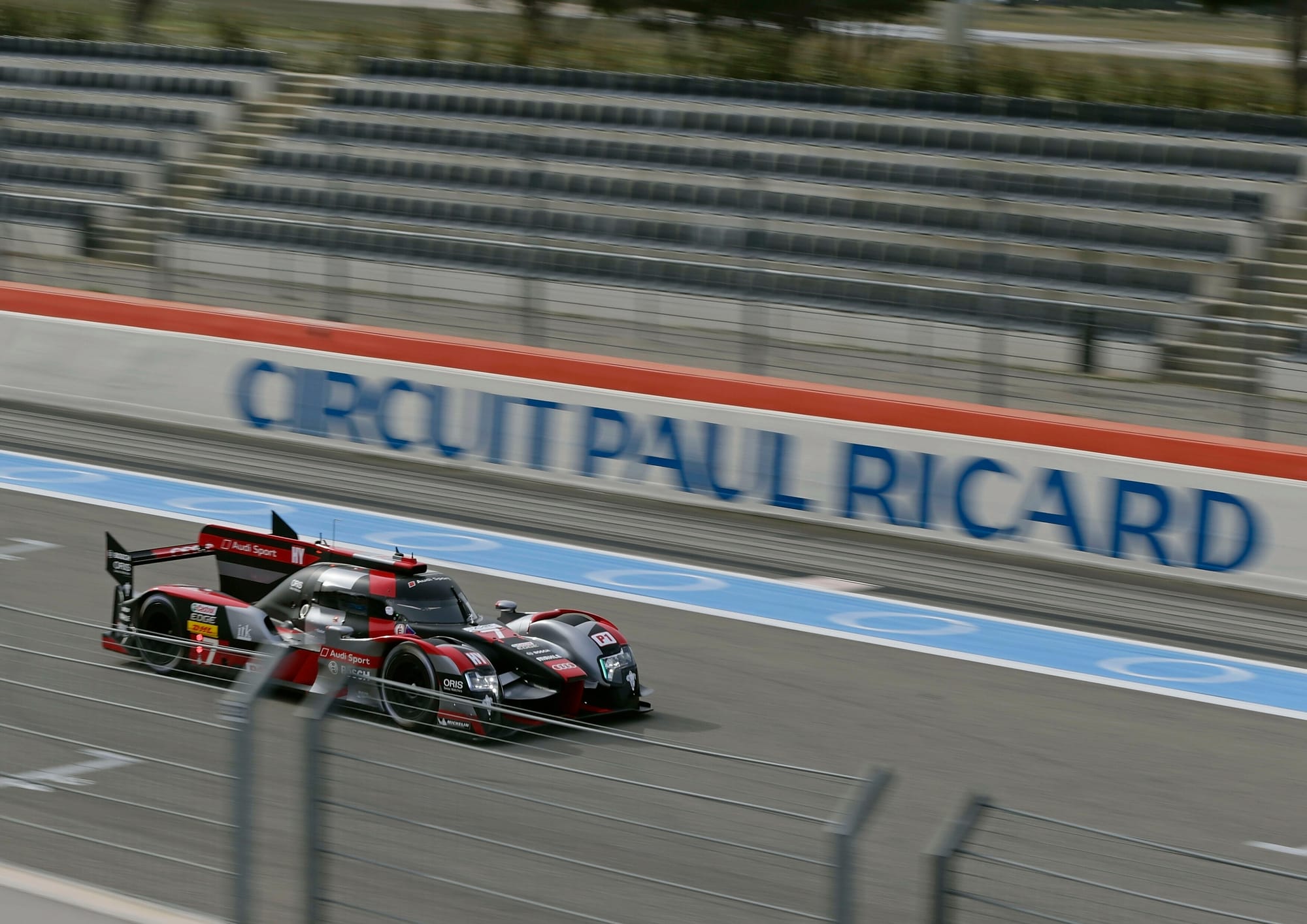
While the 2016-spec R18 was a race-winning car, it didn't win Le Mans or the world championship. Unlike some of Audi's other racecars, it was complex to repair – like many battery-powered hybrids – and at times unreliable.
Audi pulled out of WEC and Le Mans for 2017, as a result of the fallout from dieselgate, which would soon engulf the whole VW company with billions of dollars in fines. They haven't returned to Le Mans, in any category, since. 😢
Support Only Endurance's independent sportscar journalism today from £1/$1/€1 a month
Audi R8 LMS
For a time, this was the GT3 car. No question about it.
The R8 LMS was introduced in 2009 for use in GT3 series by customer or private teams. It won the 24 Hours of Spa for the first time in 2011, with Team WRT, at that point a relative newcomer in the motorsport world, running the car.
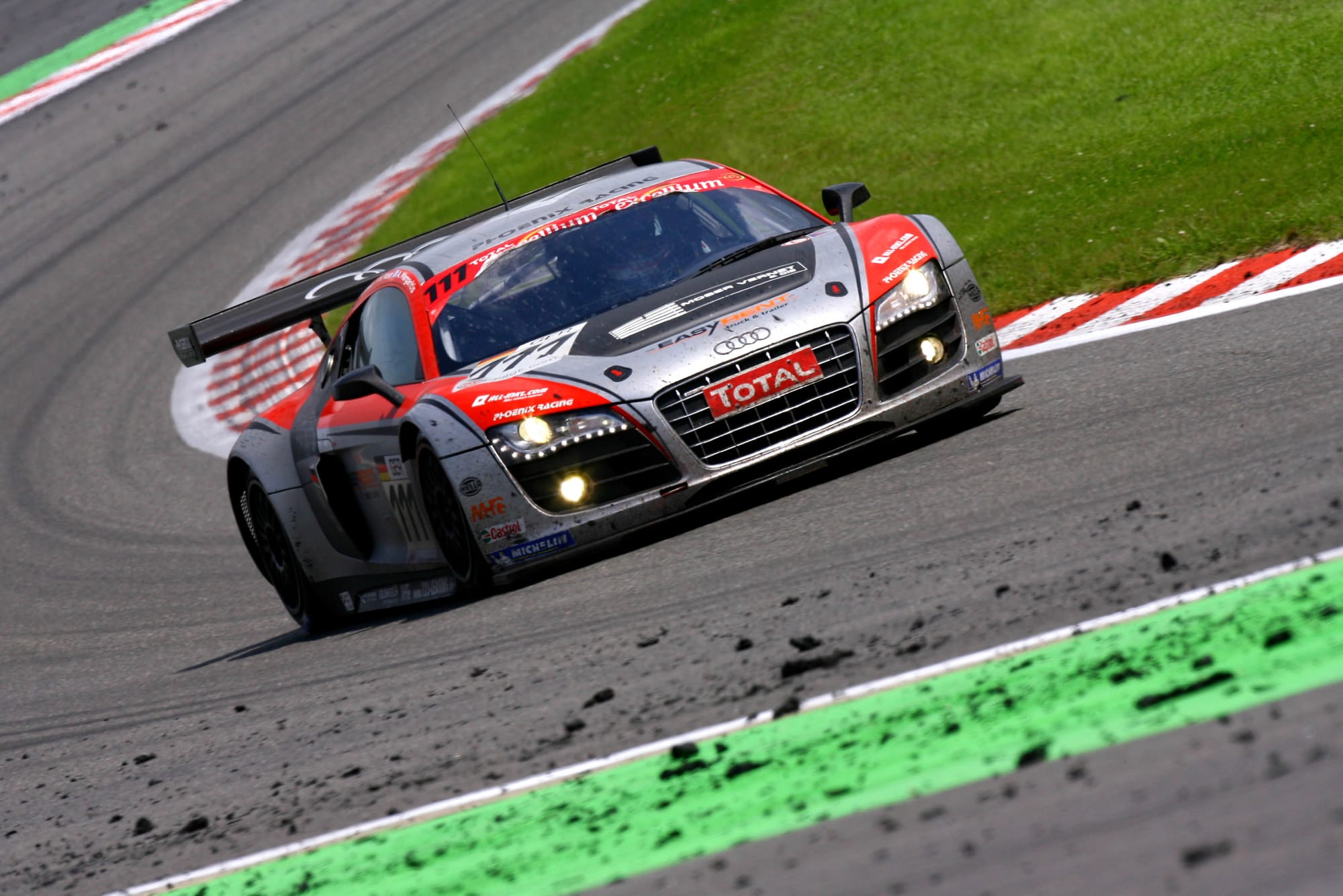
Audi, the R8 LMS, and Team WRT would pick up another win in the world's biggest GT race in 2014. Audi and Sainteloc, another Audi customer team, won the race again in 2017.
The number of races the Audi R8 LMS has competed in is countless. It's had numerous updates and revisions over its long life; from its first introduction in 2009, it was initially given an evolution update in 2012, termed 'Ultra'.
A second generation car was introduced for 2015, which itself had two evolution updates, for the 2019 season, and an Evo II update for 2022.
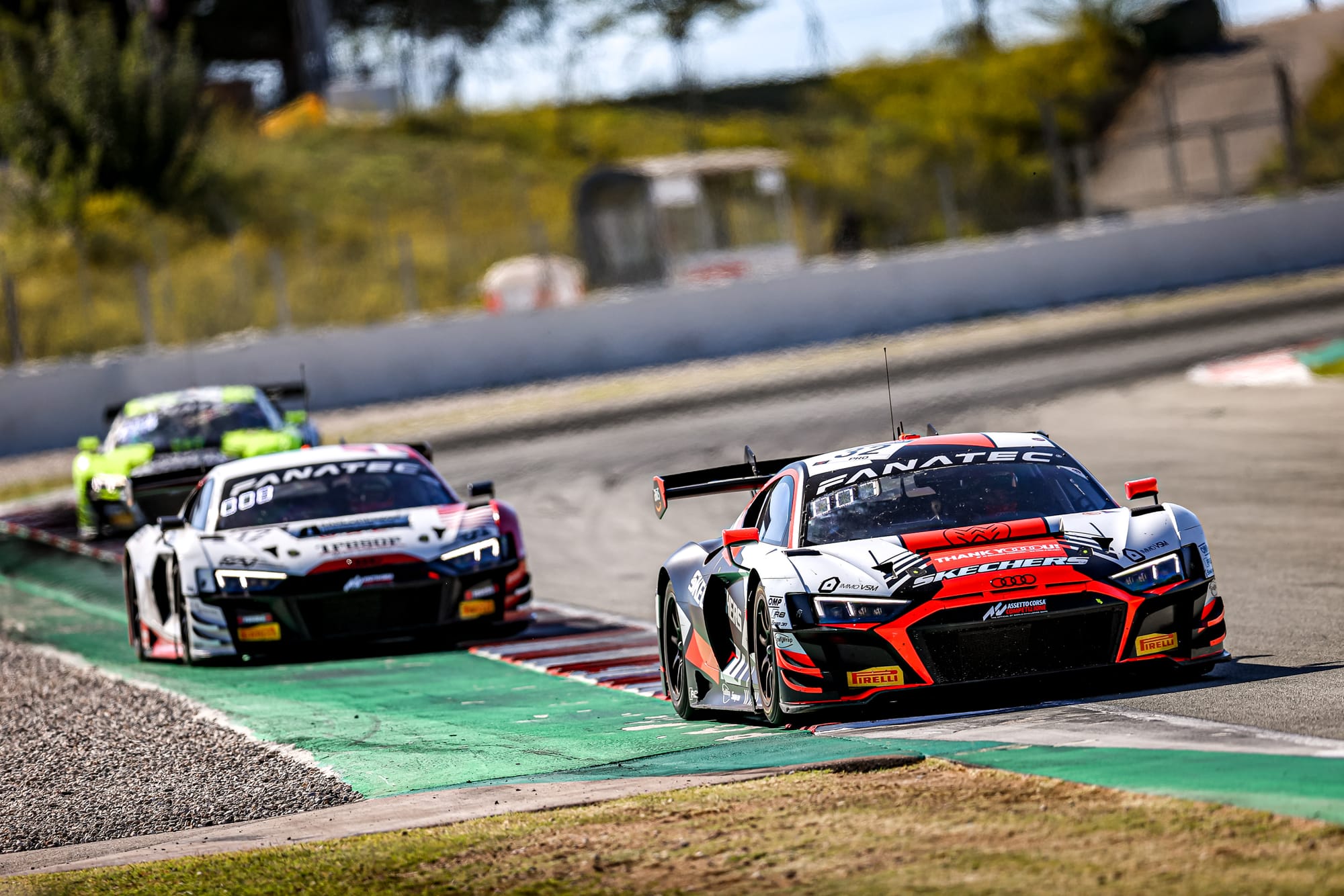
Audi stopped officially supporting it in 2023, but privateers are still racing the car around the world three years later. Its homologation will officially expire around 2028, it is believed.
A GT legend.
Audi 90 quattro GTO
An oldie but a goldie.
Audi raced this in the "original" IMSA GT championship for one year only, in 1989. As suggested by the name, it had four-wheel drive, but technically it was a "silhouette" car, which looked like an Audi 90 roadcar but underneath was a spaceframe GT car.
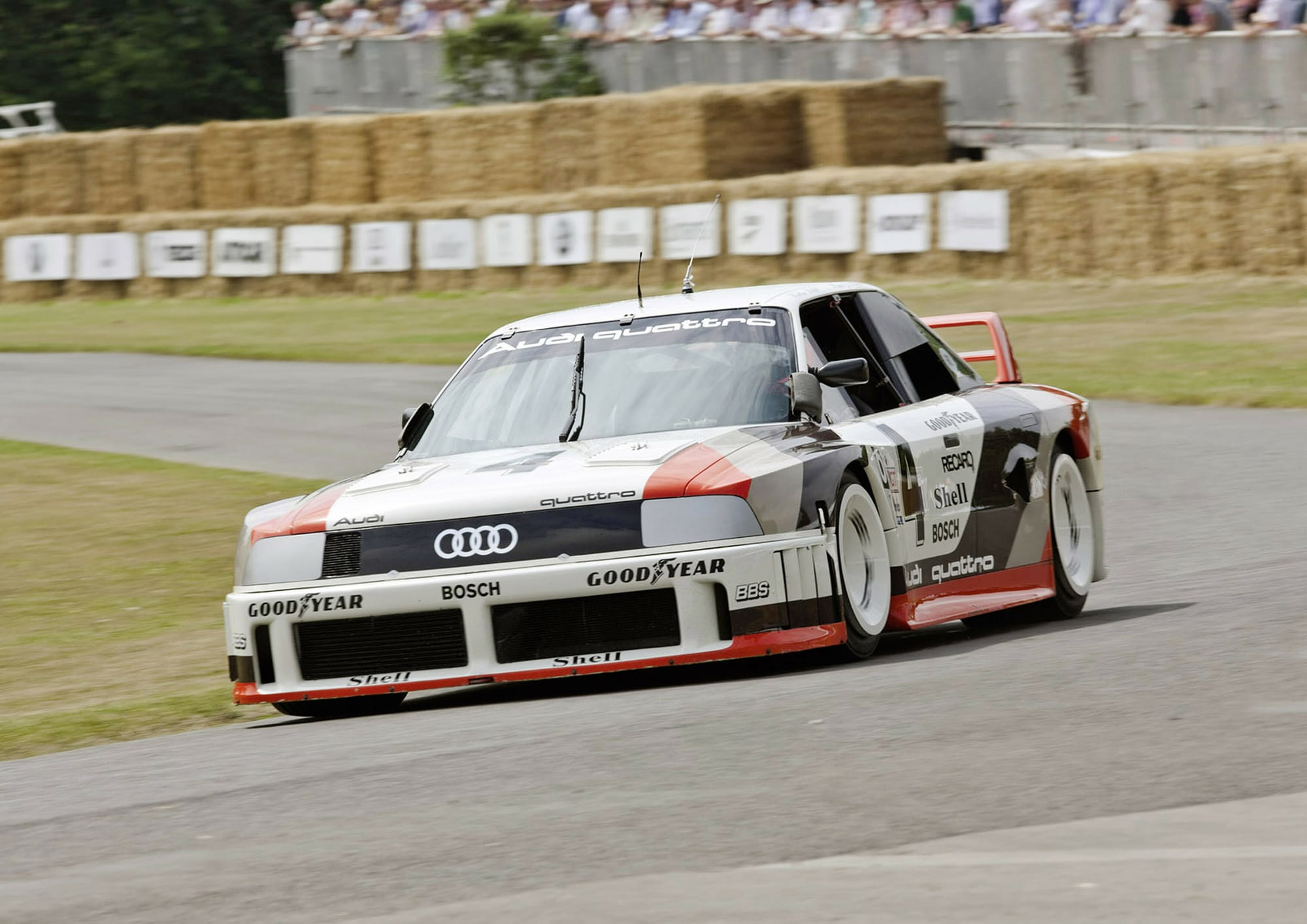
Nevertheless, Audi dominated the GTO class of the IMSA GT championship in 1989, although they didn't win the title. Why? Because they hadn't entered Daytona and Sebring, so even though Hans-Joachim Stuck and Hurley Haywood took multiple wins through the season, the title remained out of reach.
Audi pulled the plug at the end of the year because, as a German company, they wanted to focus on the domestic German championship, DTM. Although not the DTM we know today, for reasons.
Feature image: Nick Ovey

